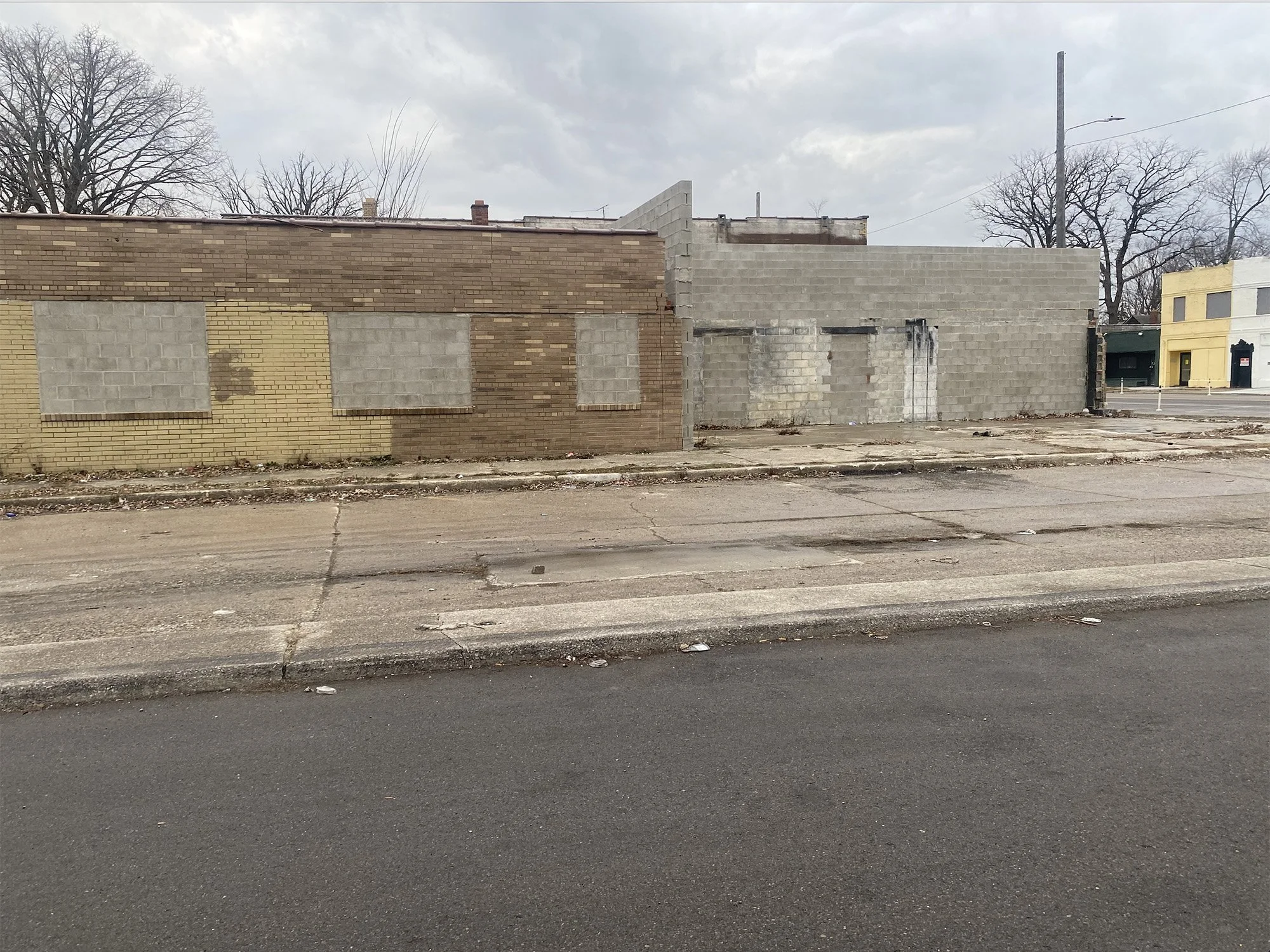Is the Land Value Tax Good for Morningsiders? Part 1
Vacant lot with an abandoned car at the corner of East Warren Avenue and Audubon. Image courtesy of Nicolas Hall
Ever since the mayor introduced the Land Value Tax plan (LVT) last May, the flow of information and misinformation has been enough to make anyone’s head spin. This is the first of a two-part series designed to analyze the arguments for and against the plan, so that you can make an informed decision.
First, a very simplified recap of what the LVT would and would not do:
It would approximately double taxes on most land, including the land under the structures on that land.
It would not increase the tax rate on side lots (up to four), community gardens, pocket parks, or community recreational spaces on land purchased from the Land Bank. (Those exemptions were created based on community feedback about the original plan.)
It would decrease taxes on occupied structures, either homes or functioning businesses, by an average of 17%. The vast majority (97%) of Detroiters should see a property tax cut.
What’s the point of taxing land and buildings separately? Supporters of the LVT say that the higher property taxes on Detroit’s vast array of vacant land will make it too expensive for investors to just sit on, prompting them to either develop it or sell it. More on that later.
The LVT still has a long road ahead. It needs to be approved first by the state legislature, which kicked the can down the road last November. Many pundits believe it will eventually get through the Democratic majority legislature. Then it needs the approval of City Council, and finally the voters.
Of course, the devil is always in the details. To learn about the LVT plan from an expert, I turned to Alex Alsup, VP of Research & Development at Regrid, a storehouse of nation-wide property data. Alex has been working on and writing about property tax issues since 2011.
He is familiar with neighborhoods all over the city, including Morningside. Equally important, he’s not employed by or beholden to the mayor in any way. In fact, he says they’ve disagreed on most property tax issues in the past.
According to Alex, the LVT is intended to be “revenue-neutral” that is, it shouldn’t change the city’s overall tax revenue. “A sudden change in tax structure can be a shock to the system,” he says. “The goal is to encourage better land use and development….The hope is that there’ll be increased revenue down the line as a result of new development.”
What will determine the success or failure of the LVT, he says, is whether and how it changes behavior. Speculators have several options if the LVT is adopted: pay the higher taxes but still do nothing with the land; walk away and let it go into foreclosure; develop or sell it; or pay just enough taxes to stay out of foreclosure.
Here’s where the size of a investor’s holdings can make a difference, Alex says. If you only own one commercial lot or two, you won’t see much increase in your overall tax burden, so you may just pay the higher taxes and continue to sit on the land.
On the other hand, the big land holders may see an overall tax increase large enough to prompt them to develop the land (or pay just enough of the higher taxes to stay out of foreclosure).
The primary concern of most residents, of course, is what would happen to their own tax bill. Fortunately, the city website has a tax estimator, which Alex believes is a reliable tool. I put my own address into the calculator as an example. My husband and I paid $1,336 in property taxes in 2023. According to the estimator, in 2024 we would pay $1,086 – a savings of $250, or approximately 18%.
Even though the tax on the land under and around our home would double, that’s more than made up for by the tax cut on the home itself. And that’s what the LVT is supposed to do for the vast majority of Detroit property owners.
The partially-demolished building at East Warren Avenue and Bedford. Image courtesy of Jeffrey D. Lewis II
Let’s look now at a couple of properties on the E. Warren business corridor. The Orchard Lake resident who owns the vacant lot at the corner of E. Warren and Audubon paid $420 in 2023. Under the LVT, she’d pay $950 in 2024. This is the only lot in Detroit she owns, and so far she’s refused offers to buy the lot. We’ll see if the $530 tax increase will prompt her to do something with the land.
Another lot, at the corner of E. Warren and Bedford, which holds a partially-demolished building, generated $370 of taxes in 2023. Under the LVT, the Ypsilanti owner would pay an additional $450 on the same property, for a total of $820. As for taxes on the derelict building itself, it wouldn’t be affected by the LVT.
It’s pretty certain that the LVT would lower the tax bills of Morningside homeowners. What’s less certain is the impact on commercial development and the city’s overall financial health. That’s the issue we’ll consider in next month’s installment, along with various concerns about the LVT. In the meantime, if you have concerns or questions about the LVT, please send them to morningsidecommunity2@gmail.com, and we’ll do our best to address them.


